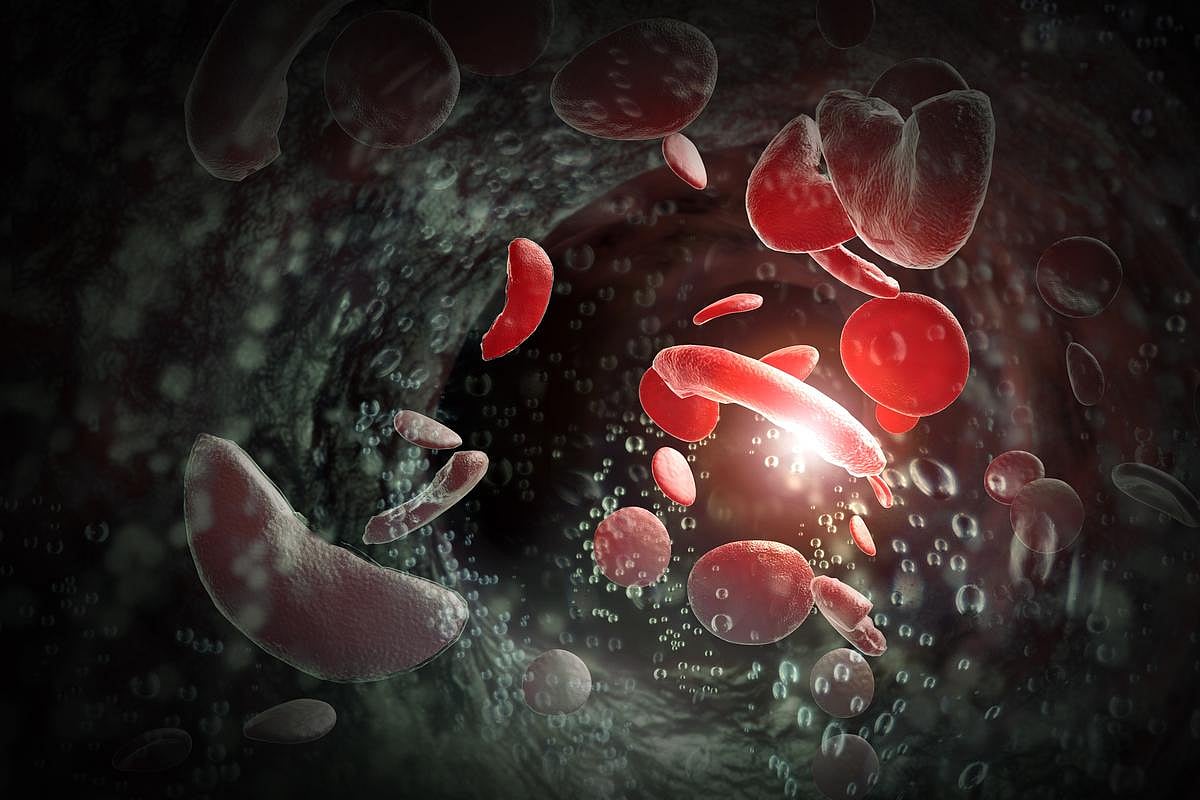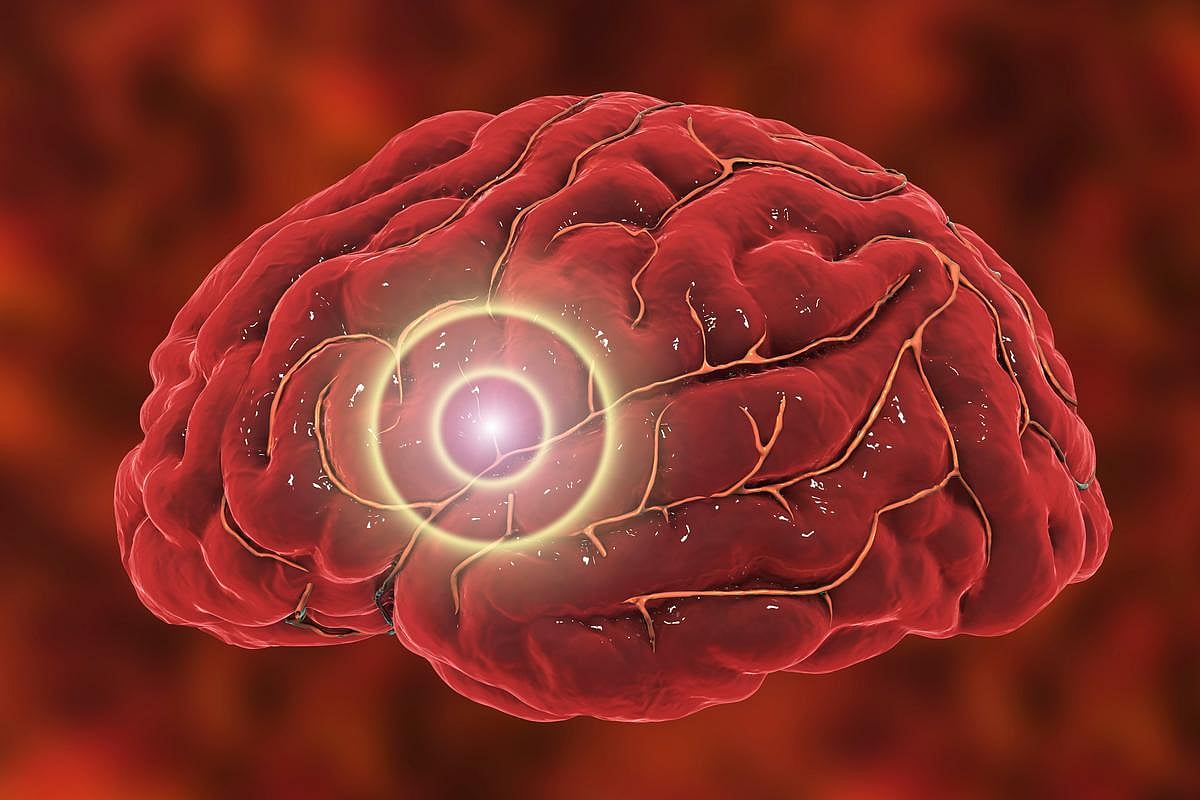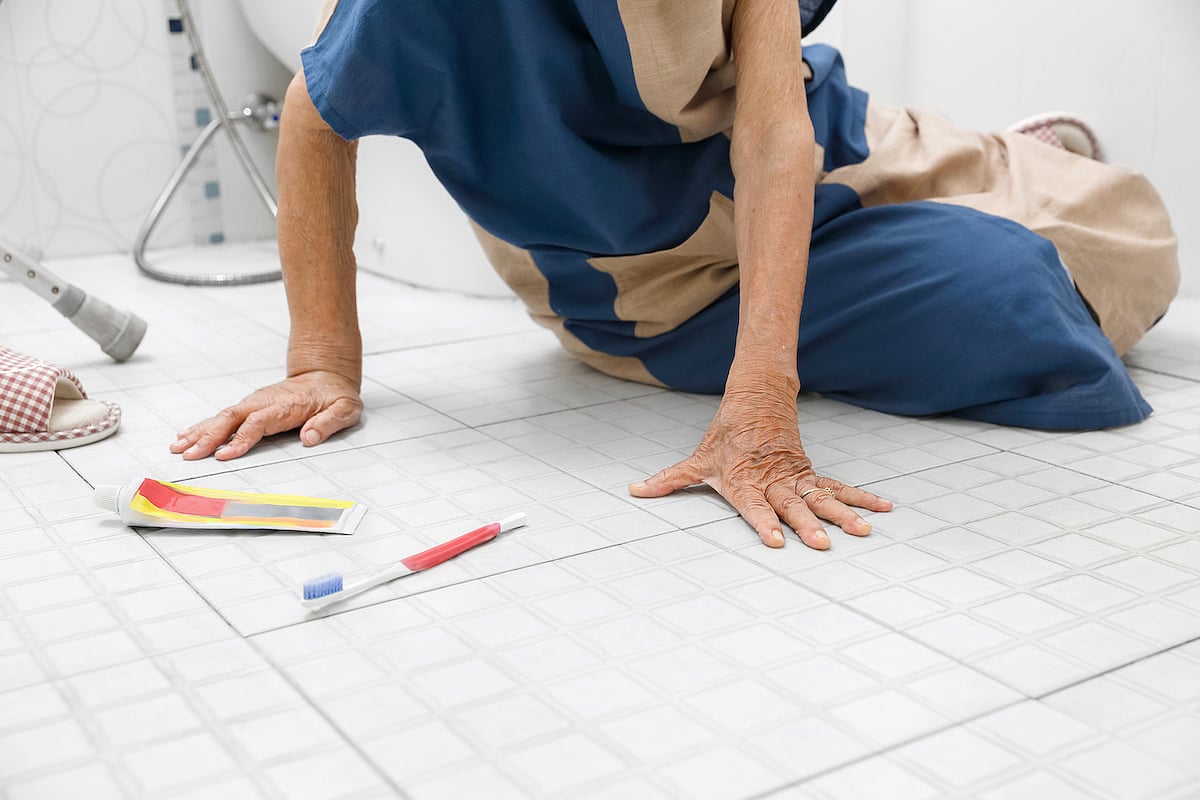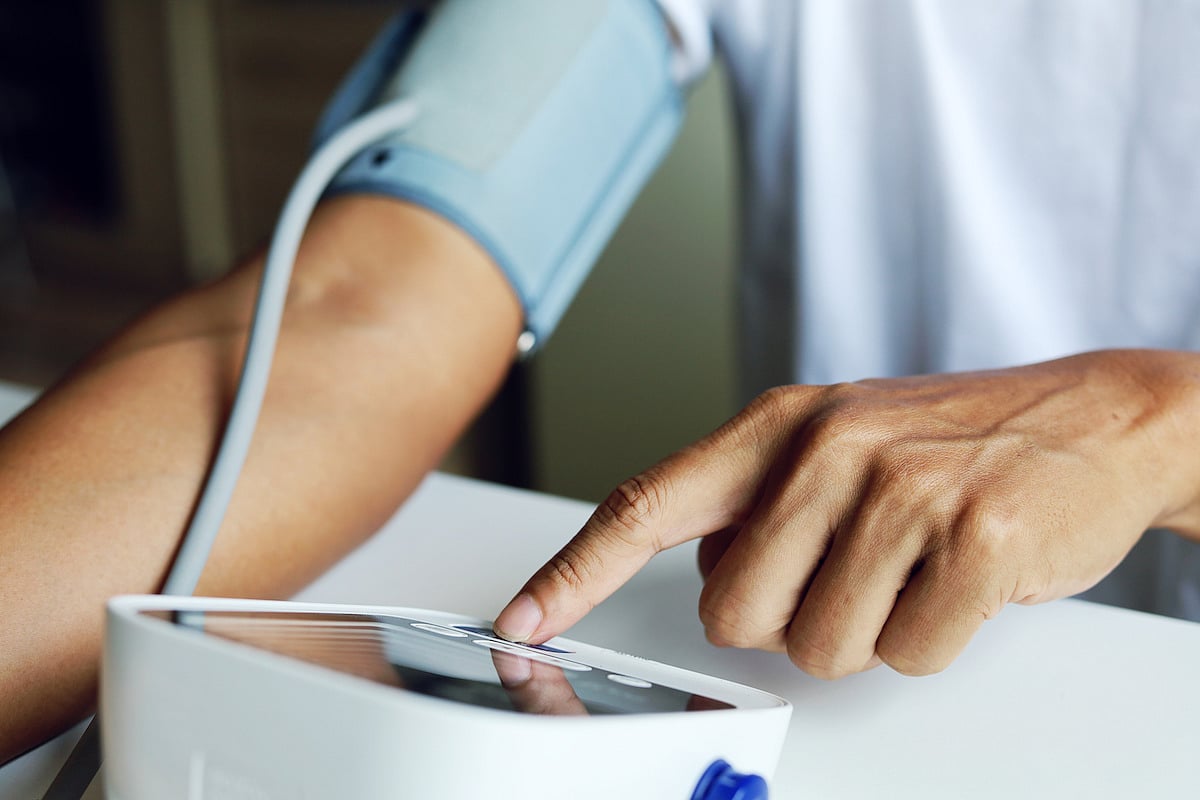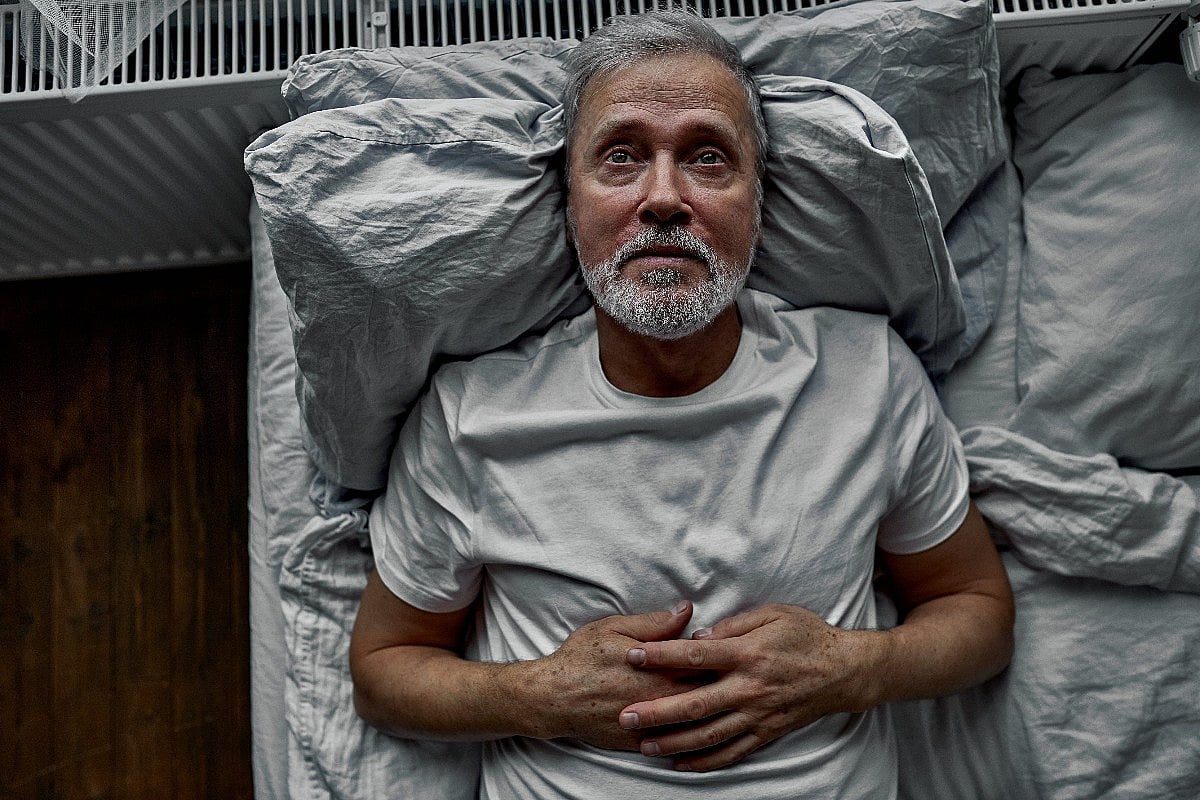Get Healthy!
271 Results for search "Heart / Stroke-Related: Stroke".
Health News Results - 271
Want to keep a stroke a bay? Drink water, nothing fizzy and skip fruit drinks.
That's the key takeaway from a global review that also raises a red flag for people who drink more than four cups of coffee a day.
"While [high blood pressure] is the most important risk factor, our stroke risk can also be lowered through healthy lifestyle choices in diet and physical activity," said lead...
- HealthDay Reporter
- Carole Tanzer Miller
- |
- October 2, 2024
- |
- Full Page
Stroke rates continue to rise among adults and children living with sickle cell disease, despite new standards of care meant to lower their risk, a new study finds.
People with sickle cell are vulnerable to strokes caused by a blood vessel to the brain either bursting or bec...
- HealthDay Reporter
- Dennis Thompson
- |
- September 20, 2024
- |
- Full Page
Climate change and worsening diets are sending global rates of stroke and stroke deaths skyward, a new study warns.
Almost 12 million people worldwide had a stroke in 2021, up 70% since 1990, according to a team led by Valery Feigin, of the Auckland University of Technology in New Zealand.
It's now the third leading cause of d...
- HealthDay Reporter
- Ernie Mundell
- |
- September 19, 2024
- |
- Full Page
Folks who are content with what they’ve got could be less likely to suffer a heart attack or stroke, a new study suggests.
“Our findings support a holistic approach to health care, where enhancing a person’s mental and emotional well-being is considered an ...
- HealthDay Reporter
- Dennis Thompson
- |
- September 18, 2024
- |
- Full Page
A few cups of coffee each morning can help protect a person against heart disease, stroke and type 2 diabetes, a new study says.
Drinking three cups of coffee a day -- or about 200 to 300 milligrams of caffeine -- lowered the risk of health problems linked to the heart or metabolism, researchers found.
“The findings highlight that promoting moderate amounts of coffee or caffei...
- HealthDay Reporter
- Dennis Thompson
- |
- September 17, 2024
- |
- Full Page
The number of Americans with a potentially dangerous heart rhythm condition is three times greater than previously thought, a new study claims.
An estimated 5% of the population -- 10.5 million U.S. adults -- have atrial fibrillation, according to new estimates from the University of California, San Fra...
- HealthDay Reporter
- Dennis Thompson
- |
- September 12, 2024
- |
- Full Page
Black stroke victims are arriving at emergency rooms much later than white patients, greatly increasing their risk of death or lifelong disability, a new study finds.
Every second counts when it comes to treating a stroke, experts say.
Any moment’s delay ...
- HealthDay Reporter
- Dennis Thompson
- |
- September 12, 2024
- |
- Full Page
Less than half of people who've survived a stroke will go on to have a healthy, normal sleep pattern, new research shows.
Normal sleep is defined as six to eight hours of shuteye nightly. However, a majority of the nearly 1,600 stroke survivors in the new study got either too much or too little sleep.
“Sleeping the right amount is considered essential for ideal brain and hear...
- HealthDay Reporter
- Ernie Mundell
- |
- September 12, 2024
- |
- Full Page
A wearable heart monitor raises the detection rate of the dangerous irregular heartbeat known as atrial fibrillation (A-fib) by more than 50%, a new study finds.
Unfortunately, there was no increase observed in the number of strokes prevented after folks got the devices, the researchers noted.
Recreational drug users are three times more likely to have repeated heart health emergencies than people who don’t use, a new study has found.
About 11% of patients admitted to intensive cardiac care units have been using recreational drugs, said researcher Dr. Raphael Mirail...
- HealthDay Reporter
- Dennis Thompson
- |
- August 28, 2024
- |
- Full Page
An experimental genetic test can gauge a person’s risk of developing potentially deadly blood clots, researchers report.
People who scored high on the test had more than double the rate of heart attack, stroke and major amputation after they underwent a procedure to re...
- HealthDay Reporter
- Dennis Thompson
- |
- August 21, 2024
- |
- Full Page
Drinking can increase a senior’s risk of a brain bleed following a fall, even if they only occasionally imbibe, a new study finds.
In fact, the risk of a brain bleed increases with a senior’s level of drinking, researchers found.
Occasional or weekly drinking doubled a pers...
- HealthDay Reporter
- Dennis Thompson
- |
- August 12, 2024
- |
- Full Page
There's more evidence to suggest that the common artificial sweetener erythritol might pose dangers to consumers' hearts.
The new study, involving 20 healthy adult volunteers, found that at doses commonly found in an erythritol-sweetened soda or muffin, the sweetener was linked to heightened activity of blood platelets, which could make clots more likely.
No such effect was seen wi...
- HealthDay Reporter
- Ernie Mundell
- |
- August 8, 2024
- |
- Full Page
New research has added two conditions to the list of 12 risk factors that boost the chances of a dementia diagnosis.
The good news? You can guard against the development of both and researchers offer advice on exactly how to do that.
In a study published Wednesday in
Puttering around the home or office isn’t enough to protect a person from stroke, a new study says.
People need to be more active to lower their stroke risk, either by exercising in their free time or biking or walking to work, results show.
“Physical activity during leisure time and as transportation is becoming increasingly important now that many jobs and domestic ac...
- HealthDay Reporter
- Dennis Thompson
- |
- July 31, 2024
- |
- Full Page
Having high blood pressure in adulthood greatly raises the odds for multiple types of stroke, a new study confirms.
“Our results suggest that early diagnosis and sustained control of high blood pressure over the lifespan are critical to preventing stroke, ischemic stroke a...
- HealthDay Reporter
- Ernie Mundell
- |
- July 24, 2024
- |
- Full Page
Hispanic people -- particularly those without insurance -- are less likely to get the additional care needed to recover from a stroke, a new study finds.
Hispanic folks are less likely to be treated at a rehab facility or receive home health care following hospitaliz...
- HealthDay Reporter
- Dennis Thompson
- |
- July 18, 2024
- |
- Full Page
There's good news and bad for stroke survival in the United States: New research shows that Americans are now more likely to survive long-term, but that's more true for whites than for Black Americans.
At least for a sample of people living in the greater Cincinnati area, "we saw that there clearly has been an improvement in five-year mortality [death] after stroke, and it probably is at ...
- HealthDay Reporter
- Ernie Mundell
- |
- July 16, 2024
- |
- Full Page
Sleep apnea is particularly dangerous for the heart health of young adults, even more so than in older folks, a new study warns.
The link between sleep apnea and risk factors for heart disease is stronger in people between 20 and 40 years of age than in those 40 and older, researchers reported recently in the Journ...
- HealthDay Reporter
- Dennis Thompson
- |
- July 11, 2024
- |
- Full Page
For decades, millions of Americans popped a low-dose aspirin each day to lower their heart risks.
Then, accumulated data prompted the nation's two leading cardiology groups -- the American College of Cardiology and the American Heart Association -- to overturn advisories in 2019 and...
- HealthDay Reporter
- Ernie Mundell
- |
- June 25, 2024
- |
- Full Page
A lonely middle and old age could bring higher odds for a stroke, new data suggests.
A 12-year study of people over 50 found that those who experienced chronic loneliness were 56% more likely to have a stroke, versus those who said they weren't lonely.
"Loneliness is increasingly considered a major public health issue. Our findings further highlight why that is,"said study lead auth...
- HealthDay Reporter
- Ernie Mundell
- |
- June 25, 2024
- |
- Full Page
Everyday tasks like taking a shower or navigating stairs can be risky business for folks in the aftermath of a stroke.
But grab bars, shower seats, ramps and other safety interventions allow many to live independently and reduce the risk of premature death, new research confirms.
One in eight stroke survivors die within a year of leaving the hospital.
"The transition per...
- HealthDay Reporter
- Carole Tanzer Miller
- |
- June 21, 2024
- |
- Full Page
A new smartphone tool could help paramedics identify a stroke in seconds by scanning the patient's face.
The AI-driven tool analyzes facial symmetry and specific muscle movements to detect subtle signs of stroke, researchers explained.
"One of the key parameter...
- HealthDay Reporter
- Dennis Thompson
- |
- June 19, 2024
- |
- Full Page
When there's pain, pressure and pounding in your head, you might think the worst: Is it a brain tumor?
Probably not, a Penn State physician assures.
Headache in and of itself is not a common sign of a tumor, because the brain itself doesn't feel pain, said Dr. John Messmer, medical director at Penn State H...
- HealthDay Reporter
- Carole Tanzer Miller
- |
- June 9, 2024
- |
- Full Page
Higher amounts of the artificial sweetener xylitol might raise the risk of heart attack and stroke, a new study warns.
Xylitol is a zero-calorie sugar alcohol commonly used in sugar-free candy, chewing gum, baked goods and toothpastes, researchers said.
But high blood ...
- HealthDay Reporter
- Dennis Thompson
- |
- June 6, 2024
- |
- Full Page
Common drugs used to control cholesterol, blood sugar and high blood pressure might also lower a person's risk of stroke, a new study finds.
The researchers evaluated the risk of brain aneurysms that cause bleeding strokes in patients.
For the study, they looke...
- HealthDay Reporter
- Dennis Thompson
- |
- June 6, 2024
- |
- Full Page
Less than one-quarter of people who survive serious heart conditions receive the dietary counseling needed to protect their future health, a new study finds.
Only about 23% of people treated for major illnesses like heart attack and heart failure receive counseling on their ...
- HealthDay Reporter
- Dennis Thompson
- |
- June 5, 2024
- |
- Full Page
The rate at which Americans under the age of 65 suffered a stroke rose by about 15% between 2011 and 2022, new government data shows.
That was true even among the young: The rate of stroke jumped 14.6% among people ages 18 to 44 during the study period, researchers from the U.S. Centers for Disease Control and Prevention found.
It's not clear why stroke rates have risen so sharply, ...
- HealthDay Reporter
- Ernie Mundell
- |
- May 23, 2024
- |
- Full Page
Ultra-processed foods are bad for more than your waistline: New research shows they seem to raise the risk of stroke and dementia-related memory or thinking problems.
A 10% increase in the amount of ultra-processed foods a person eats is associated with a 16% higher risk of cognitive problems, researchers f...
- HealthDay Reporter
- Dennis Thompson
- |
- May 23, 2024
- |
- Full Page
When a stroke hits, "time is brain," doctors say, with neurons beginning to die off in minutes.
Quickly figuring out which type of stroke a patient has been hit with is crucial. Now, an experimental blood test might speed that process along.
A team from Brigha...
- HealthDay Reporter
- Ernie Mundell
- |
- May 20, 2024
- |
- Full Page
Climate change is likely to make brain conditions like stroke, migraine, Alzheimer's disease, epilepsy and multiple sclerosis even worse, a new review warns.
The potential effects of a changing climate is likely to be substantial on a range of neurological conditions, researche...
- HealthDay Reporter
- Dennis Thompson
- |
- May 16, 2024
- |
- Full Page
The dangerous heart rhythm disorder called atrial fibrillation is becoming more common in middle-aged people, a new study warns.
More than a quarter of patients at the University of Pittsburgh Medical Center (UPMC) seeking care for A-Fib during the last decade...
- HealthDay Reporter
- Dennis Thompson
- |
- April 22, 2024
- |
- Full Page
The dangerous heart rhythm disorder known as atrial fibrillation is mainly known for increasing people's risk of stroke.
But people with A-Fib actually have a much higher risk of developing heart failure than suffering a stroke, a new study shows.
In fac...
- HealthDay Reporter
- Dennis Thompson
- |
- April 19, 2024
- |
- Full Page
Managing a stroke victim's blood sugar levels after they receive powerful clot-busting drugs might help them survive their health crisis, a new trial finds.
People with high blood sugar levels were more likely to suffer a potentially deadly brain bleed after clot-busters reopened their blocked brain arteries, researchers found.
The risk was particularly high in older patients with m...
- HealthDay Reporter
- Dennis Thompson
- |
- April 19, 2024
- |
- Full Page
An immune-compromised man with a year-and-a-half-long COVID infection served as a breeding ground for dozens of coronavirus mutations, a new study discovered.
Worse, several of the mutations were in the COVID spike protein, indicating that the virus had attempted to evolve around current vaccines, researchers report.
"This case underscores the risk of persistent SARS-CoV-2 infection...
- HealthDay Reporter
- Dennis Thompson
- |
- April 19, 2024
- |
- Full Page
Intense weather fluctuations caused by climate change could be contributing to an increase in stroke deaths, a new study claims.
Freezing cold fronts and broiling heat waves are associated with more than half a million deaths annually in recent years, researchers report April 10 in the ...
- HealthDay Reporter
- Dennis Thompson
- |
- April 11, 2024
- |
- Full Page
Just a little exposure to secondhand smoke may increase your risk for the heart rhythm disorder atrial fibrillation (A-Fib), a new, large study suggests.
People who have A-Fib, the world's most common heart rhythm disorder, are five times more likely to have a stroke than their healthy peers.
While passive smoking has been linked to heart disease and early death, links between...
- HealthDay Reporter
- Carole Tanzer Miller
- |
- April 8, 2024
- |
- Full Page
America is making headway against heart disease, with heart-related deaths declining over the past three decades.
But it appears that only the well-to-do have benefitted, a new study shows.
Heart attack rates have stayed the same or gotten worse among ...
- HealthDay Reporter
- Dennis Thompson
- |
- April 5, 2024
- |
- Full Page
Living in a poor and unhealthy neighborhood could nearly double a person's risk of heart disease and stroke, a new study says.
The findings indicate that all the factors that make for a crummy neighborhood -- air and water pollution, toxic sites, few parks, tons of traffic -- play a ...
- HealthDay Reporter
- Dennis Thompson
- |
- March 28, 2024
- |
- Full Page
Migraines in young adults appear to increase their risk of stroke more than traditional risk factors like high blood pressure, a new study reports.
Results show that migraine is the most important non-traditional risk factor for stroke among adults ages 18 to 34, accounting for 20% of strokes in men and nearly 35% in women.
Overall, non-traditional risk factors were associated with ...
- HealthDay Reporter
- Dennis Thompson
- |
- March 27, 2024
- |
- Full Page
The bright lights of the big city might seem exciting, but they could also raise a person's risk of stroke, a new study suggests.
Bright artificial lights that illuminate the night seem to affect blood flow to the brain in ways that make stroke more likely, researchers report.
People with the highest levels of exposure to outdoor light at night have a 43% increased risk of diseases ...
- HealthDay Reporter
- Dennis Thompson
- |
- March 26, 2024
- |
- Full Page
Six out of every 10 stroke survivors wind up struggling with depression later in their lives, a new study says.
That compares to the 22% depression rate of the general population, results show.
Further, 9 of 10 stroke-related depression cases occur within five years of surviving a stroke, r...
- HealthDay Reporter
- Dennis Thompson
- |
- March 26, 2024
- |
- Full Page
Medicare will now cover the popular weight-loss drug Wegovy if patients using it also have heart disease, U.S. officials announced Thursday.
The move comes after the U.S. Food and Drug Administration approved drugmaker Novo Nordisk's application to add
Younger Black Americans face particularly high risks of developing high blood pressure.
However, new research finds that when your peers are coaching you to get healthy, it's more likely you'll see your numbers improve.
The study of nearly 1,600 ...
- HealthDay Reporter
- Ernie Mundell
- |
- March 21, 2024
- |
- Full Page
Intermittent fasting might be bad for your heart, a new study warns.
People who restricted their eating to an 8-hour window had nearly twice the risk of heart-related death compared to folks who ate freely, results show.
This runs counter to previous research in which intermittent fasting impr...
- HealthDay Reporter
- Dennis Thompson
- |
- March 19, 2024
- |
- Full Page
Lots of seniors are regularly taking low-dose aspirin in hopes of preventing heart attacks and strokes, even though updated guidelines often advise against it.
About one in four older adults take aspirin at least three times a week, according to results from the University of Michigan's
Even a little physical activity can cut a person's stroke risk compared to being a complete couch potato, a new review shows.
Folks whose physical activity levels fell short of recommended guidelines still had a lower risk of stroke than those who got no exercise, researchers report.
Compared with no exercise, the highest "ideal"amount of physical activity cut stroke risk by 29%, re...
- HealthDay Reporter
- Dennis Thompson
- |
- March 7, 2024
- |
- Full Page
The more steps a person can fit into their day, the lower their risk of early death and heart disease, regardless of how much a couch potato they are otherwise, a new study shows.
People who are sedentary for more than 11 hours a day gain the same health benefits from walking more as more active folks do, researchers found.
The optimal number of daily steps to improve health was bet...
- HealthDay Reporter
- Dennis Thompson
- |
- March 6, 2024
- |
- Full Page
A new robotic hip exoskeleton could help stroke patients improve their walking stride, a new study shows.
More than 80% of stroke survivors develop problems walking, often because their step is shorter on one side than the other, researchers explained in background notes.
The hip exoskeleton helps people adapt their stride by forcing both legs to take similar strides, researchers re...
- HealthDay Reporter
- Dennis Thompson
- |
- March 5, 2024
- |
- Full Page
Folks who use marijuana have a greater risk of heart attack and stroke, with the odds rising even higher when they partake every day, a new study finds.
Both daily and non-daily marijuana users had an increased risk of heart attack and stroke compared to non-users, researchers reported Feb. 28 in the Journal of the American Heart As...
- HealthDay Reporter
- Dennis Thompson
- |
- February 28, 2024
- |
- Full Page


